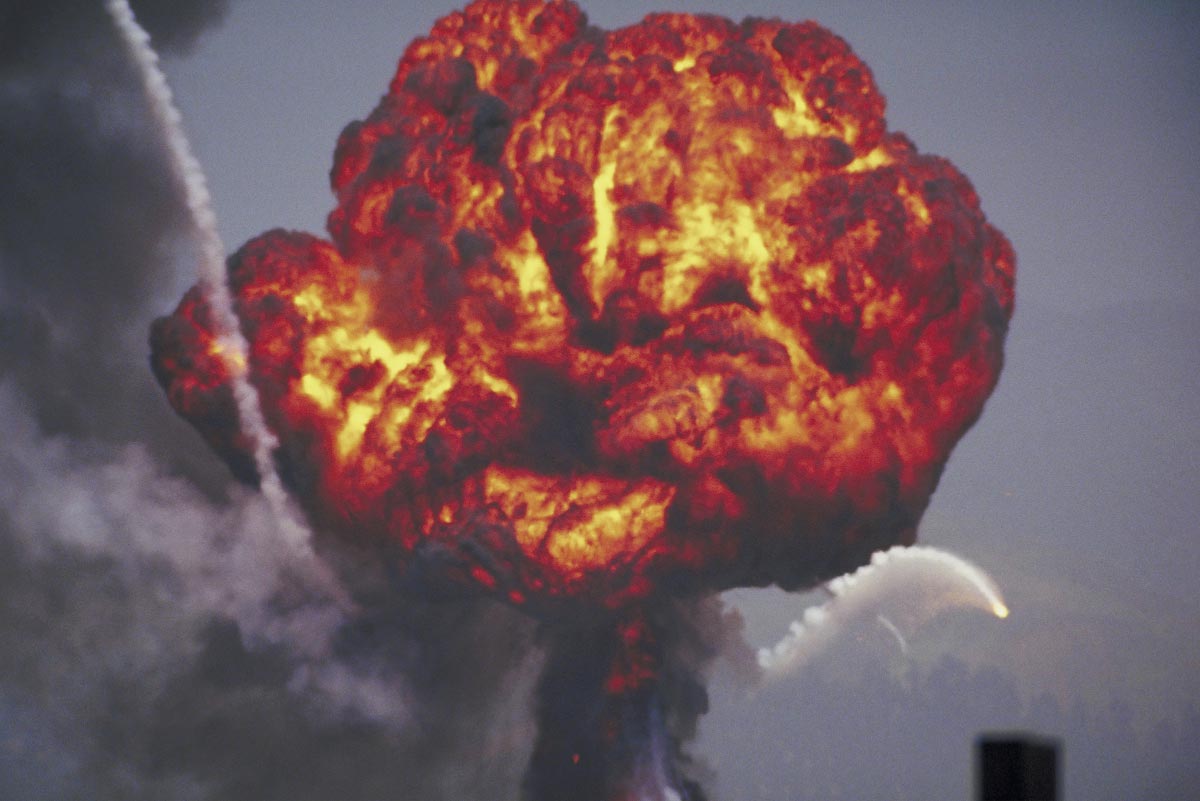Non-preppers actually do have an accidental food supply they never considered: EACH OTHER
09/16/2015 / By usafeaturesmedia

No one can accurately predict the future, nor has anyone done so – not Nostradamus, not soothsayers through the ages, not fortune-tellers. Not even the Bible provides an up-to-the-moment prediction about when Jesus will return, only that He will come like “a thief in the night.”
Understanding and accepting that premise – that we cannot foretell the future, especially if/when disaster may strike – is what gives the “prepper” movement credibility. Even the federal government offers tips about how to survive after a disaster.
That said, it is human nature to generally believe and accept that “things will be okay” – that no matter what happens, civilization will continue, the banks will remain open, food chains will remain intact, and “the system” will survive to ensure that all is well in the end.
After all, it’s much easier to believe that “things will be okay” because it allows for a suspension of belief that soothes the soul and gives us that “out of sight, out of mind” mentality, thus enabling us to ignore the “bad things” and carry on with our daily lives.
Only, disaster does strike – we’ve seen it time and time again, in Fukushima, Japan; in Sri Lanka; in New Orleans after Hurricane Katrina. And when it does, reality comes crashing down like a meteor from space.

And by then, of course, it’s too late to “prepare.”
Survival of the fittest
It’s the lack of preparation by the many, however, that leads to such catastrophic consequences for a community, a city or an entire society. It’s why cataclysmic events tend to wreak so much havoc, often scarring regions – and populations – for years afterward.
The power of the elements: Discover Colloidal Silver Mouthwash with quality, natural ingredients like Sangre de Drago sap, black walnut hulls, menthol crystals and more. Zero artificial sweeteners, colors or alcohol. Learn more at the Health Ranger Store and help support this news site.
In the examples of crises listed above, governments were eventually able to get a handle on things, to mitigate danger and minimize the trauma and suffering. The first few days were, of course, chaotic, but because the disasters were localized, they were relatively easy to control (though Fukushima is the disaster that just keeps on giving).
But what about a disaster on a much larger scale? What would happen to the civil society, say, following a large-scale military attack, or a naturally occurring disaster like a meteor strike, which would devastate entire countries?
If you remember the movie The Road, that gives you a pretty good idea of what would come next.

Destruction on that scale would obliterate all existing infrastructure: electric power, banking systems, water purification, air traffic control, the food chain (from the fields to the supermarket and all points in between), goods distribution (think primarily trucks and trains) and, importantly, any semblance of law and order. During Hurricane Katrina alone, for instance, law and order broke down almost immediately, resulting in more death, destruction and mayhem – and that was just for several days.
Imagine a situation where the destruction was much more widespread and, in some cases, became the new reality, the new permanence.
Who would survive?
In two words: The fittest, which means any number of things.

Who can you trust? Who should you trust?
Any reasonable profile of survivors deemed “the fittest” would definitely include a great many “preppers,” though just because someone thought ahead to store food, water, clothing and weapons is not a guarantee of survival. “The fittest” will also have the mental capacity required to deal with death and destruction on a biblical scale.
Having a “plan” – what to do in case of [fill in the blank] – will, of course, be helpful too, but only if said plan is diverse and includes as many variables as one can possibly think of.
And who can you trust? Initially, if some of your friends and neighbors survive the initial onslaught, it may seem as though you will have some ready allies. But will you? What if said friends and neighbors didn’t prepare, as you did? What if they are only able to gather a few articles of clothing, food and some water – perhaps only enough for a couple of days? Can you feed them and provide them water? Should you?
What happens when you encounter other survivors, as you inevitably will? Can you rely on them to be friendly? Will they willingly share what they have with you and your group? Or will you be reduced to “survival of the fittest”?

What should non-preppers be prepared to do?
In The Road, the main character and his son are attempting to make their way to the sea following an undefined massively destructive event that destroys civil society and its accompanying modernity and infrastructure. At various junctures along the way, they encounter a number of challenges, including people who feast on others just to survive.
Will that be you? Will that be members of your party? Will it come to that?
It’s happened before, and in America. You may recall reading about the Donner Party, a group of settlers who migrated west to California from Springfield, Ill., in 1846 but became snowbound in the Sierra Nevadas over the winter. They had to resort to cannibalism in order to survive.
In a country-ending, world-convulsing event, there can be no guarantees for survival, even for those who have “prepped” for it, though clearly such people will have an upper hand right off the bat. But non-preppers can be certain of one thing: If they want so survive as well, they will be forced to do things that, right now, in the comfort of modern life, seem horrific and unconscionable.
Sources:
Tagged Under: cannibalism, disaster, economic collapse, emergency preparednes, famine, food supply, Preppers, society, starvation




















